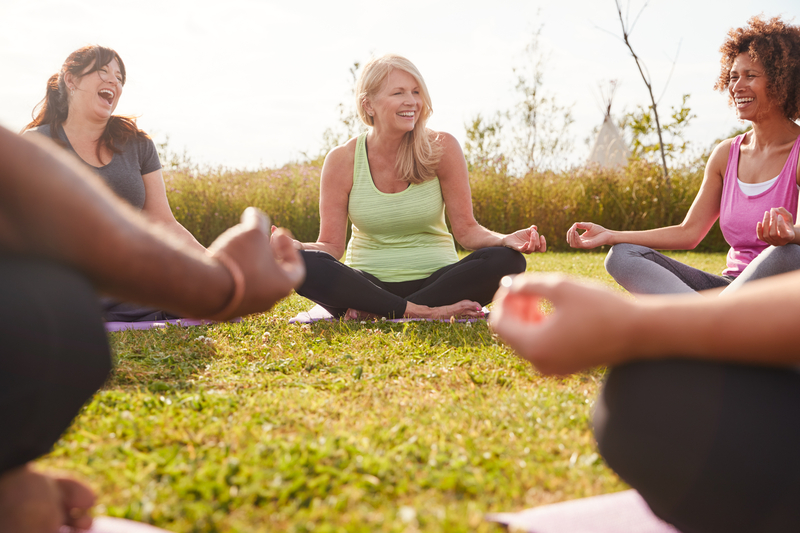The Life-Saving Power of Social Connections

Imagine a health risk so severe, it increases the chances of early death as much as smoking 15 cigarettes a day. A risk factor that’s tied to higher rates of heart disease, stroke, dementia, anxiety, and depression. One that weakens the immune system, making you more vulnerable to illness. It even slows recovery from injuries or surgery.
No, it’s not a new disease. In fact, it’s not a disease at all. It’s not a poor diet, either, or a lack of exercise. What is this risk factor? It’s social isolation. And this silent, deadly epidemic is affecting millions of people.
According to research, social connections are one of the most powerful predictors of long-term health and well-being. And people with strong relationships not only tend to live longer, but they also experience less stress, better heart health, stronger immunity, and greater resilience to life’s challenges. Yet, in today’s fast-paced, tech-driven world, many people feel more disconnected than ever before.
Fortunately, there is hope. Small, intentional steps can make a profound difference in social connections. Even short conversations, a simple text, or meeting up for a short walk can help rebuild the meaningful bonds that are so often lacking in modern society.
Today, we’ll be exploring the science-backed benefits of social connections and easy ways to strengthen relationships—even if you’re short on time or out of practice.
Let’s get connected!

The Science: Why Social Connections Are Vital for Health
Let’s face it: humans are wired for connection. From the moment we enter the world, our survival depends on key relationships—starting with caregivers and later expanding to the broader community.
Beyond emotional well-being, science demonstrates that social connection plays a life-saving role in our physical health, including:
A Stronger Immune System
Feeling socially connected isn’t just a way to boost mood. It also balances your immunity. Research found people with strong social networks are less likely to catch colds. They also produced less mucus and were better able to clear symptoms when exposed to viruses—all thanks to a more robust immune response. Conversely, loneliness can lead to increased inflammation and a weakened ability to fight off illness.
Lower Stress & Better Resilience
Social support is one of the most powerful buffers against stress. This may be due, in part, to the so-called “love hormone” oxytocin. You see, when we connect with others—through conversation, touch, or simply knowing someone is there for us—our bodies release this powerful compound. Oxytocin then helps lower the primary stress hormone cortisol. In turn, we may experience lower levels of anxiety and enjoy greater overall resilience. Studies have even found that those who regularly engage with friends and loved ones experience less stress-related health damage over time.

A Healthier Heart
Your heart thrives on connection—quite literally. Research from the American Heart Association links loneliness to higher blood pressure, increased inflammation, and greater risk of heart disease and stroke. In contrast, strong social ties have been associated with lower blood pressure, better cardiovascular health, and a lower risk of heart-related mortality.
Brain Health & Longevity
Want to keep your mind sharp as you age? Of course! Studies from Harvard and the National Institute on Aging suggest social engagement reduces the risk of cognitive decline and dementia. One long-term study found the quality of relationships in midlife was a strong predictor of healthy aging. In fact, friendships and meaningful social ties are just as important for longevity as physical health markers like blood lipids.
Pain Tolerance & Faster Healing
If you feel lonely, it doesn’t just take a toll on your mind; it can make physical pain feel more, well, painful. Research suggests social rejection can activate the same brain regions as physical pain. Ouch! On the flip side, feeling connected actually increases pain tolerance, helps you cope better, and promotes more positive emotional states. What’s more, it may even speed recovery from illness or surgery.
The Surprising Impact on Mortality
A landmark meta-analysis of 148 studies found people with strong social connections had a 50% increased likelihood of survival over a given period compared to those who were socially isolated. This held true across age groups, health conditions, and lifestyle factors, making social connection as crucial to longevity as well-established risk factors, such as quitting smoking or maintaining a healthy diet. Wow!
In short, connection is medicine. The science is clear: our relationships profoundly shape our health. Strong social ties don’t only add years to life, but they add life to your years by reducing the risk of disease and improving overall well-being.
While social disconnection is increasing at alarming rates, that doesn’t have to be your story. There are simple, effective ways to rebuild social connections and strengthen relationships. Let’s look at how.

8 Powerful (and Simple) Ways to Strengthen Social Connections
Building and maintaining strong relationships doesn’t have to be complicated. Even small, intentional actions can make a profound difference. Here are eight research-backed ways to strengthen your social connections, boost emotional resilience, and improve overall well-being:
The 8-Minute Catch-Up
Feeling short on time? Wondering how you can carve out even a few minutes? You’re certainly not alone. But there’s good news. Leadership expert Simon Sinek highlights the power of short yet meaningful catch-ups, suggesting it takes just eight minutes to strengthen social bonds.
The idea is simple—schedule just eight minutes to talk with a friend or loved one. Even a few minutes together can help build trust, boost mood, and reduce stress.
Research shows that brief conversations with friends improve mental well-being and create a sense of connection, even when time is limited. To fit these micro-connections into your busy days, try:
- Calling a friend on your commute to or from work.
- Sending a quick “thinking of you” voice note—and if you (or they) are having a tough day, ask if they can set aside 8 minutes later that day.
- Taking a walk or grabbing a coffee with a friend or colleague for a short but fully present conversation.
Even small moments of connection can provide lasting benefits.
Prioritize Micro-Connections
Not every social interaction needs to be deep or lengthy to make a difference. Daily micro-interactions—such as smiling at a stranger, chatting with a barista, or making eye contact—can decrease feelings of loneliness and increase happiness. One study from the University of British Columbia demonstrates that even the most casual social interactions can increase feelings of belonging. Even if you have a fairly small circle of friends, you can:
- Make small talk with a neighbor.
- Ask your cashier how their day is going.
- Send a quick text to a friend to let them know you’re thinking of them.

Join a Group or Community
Finding like-minded people makes connections easier and more natural. You may be able to find a wide range of activities at your local recreation or community center. These types of low-pressure shared activities provide a great opportunity to organically build relationships. What’s more, shared experiences have been found to help strengthen social bonds faster than passive interactions.
- Try a fitness class, book or gardening club, hiking group, pickleball, bowling, or dart league, or local meetup.
- Volunteer with a cause or organization you’re passionate about.
- To find your people, consider joining a Facebook group like our VIP Insiders.
- Sign up for a class or seminar that interests you—from art to dance to language and so much more.
- Find community events through your local newspaper, Facebook, or meetup app.

Make Friendship a Habit
We schedule work meetings, doctor appointments, workouts, and (hopefully) date nights, but what about friendships? Building connections into your routine ensures relationships don’t get lost in the busyness of everyday life. With the importance of consistent social interactions for long-term emotional and physical well-being, it’s vital to set aside time for friends. For example, try to:
- Set up a recurring coffee, hike, dinner, or movie night with a friend.
- Plan one social event each week (or month), no matter how small.
- Add a reminder to reach out to [friend’s name] every week.
- If you’ve moved to a new area, you can set up a call or Facetime with friends back home so those connections remain strong.

Be Fully Present
With so much going on all around us, it’s easy to be distracted. Perhaps you’ve been in a conversation with another person when they keep glancing at their phone? Presence, however, is the foundation of connection. When you give someone your full attention, it deepens the relationship and improves the quality of your interactions.
One study found that simply putting your phone away during in-person interactions increases engagement, emotional connection, and enjoyment.
- Put your phone on silent and then put it out of sight (such as in a bag or at least upside down).
- Make eye contact and listen actively.
- Show genuine curiosity by asking thoughtful questions and responding meaningfully.

Give and Receive Support
Strong relationships thrive on mutual support. Whether it’s offering help or accepting it, being there for others fosters trust, connection, and deeper friendships.
In addition, studies show that acts of kindness boost serotonin and oxytocin, the “feel-good” chemicals in the brain that can help reduce stress and increase happiness.
- Help a neighbor, check in on a friend, send a thoughtful message—even small gestures foster connection.
- Be open to giving and receiving support. Remember the adage, “A friend in need is a friend indeed.” Letting people help strengthens bonds.
- Express gratitude—a simple “thank you” boosts emotional well-being and strengthens relationships.

Reconnect with Old Friends
Most of us can think of a friend we may have lost touch with over time. Reaching out doesn’t have to be awkward. Most people appreciate the effort, and rekindling a friendship can often be surprisingly easy with a simple message. While it’s not always the case, many people find they can pick up right where they left off.
- Send a “Hey, I was thinking about you today” text.
- Share a memory or inside joke to break the ice.
- Set up a low-key meetup (either in person or virtually) to catch up.

Foster In-Person Connections When Possible
Digital connections are great. There’s no doubt about that. But what’s even more valuable? Face-to-face interactions! Even getting together in person occasionally can reduce loneliness and strengthen relationships. Again, studies indicate that socializing in person increases oxytocin and lowers cortisol, making us feel more connected and reducing stress.
- Even if it’s just once a month, once a quarter, or a couple of times a year, schedule a walk, coffee, or a meal together.
- Invite a friend to run errands together instead of going solo.
- Plan a game night, movie night, or casual get-together. No special occasion needed!
Social Connections: Small Steps, Big Impacts
Connection is a choice. You don’t need a huge social circle to reap the wonderful (life-saving even) benefits of connection. Even one or two strong relationships can make a world of difference for your health and happiness.
If you’ve been out of practice, start small. Make a call. Send a text. Schedule a time to get together. Connection isn’t about having time. It’s about making time. And when you do, you’re investing in one of the most powerful tools for lifelong well-being.






